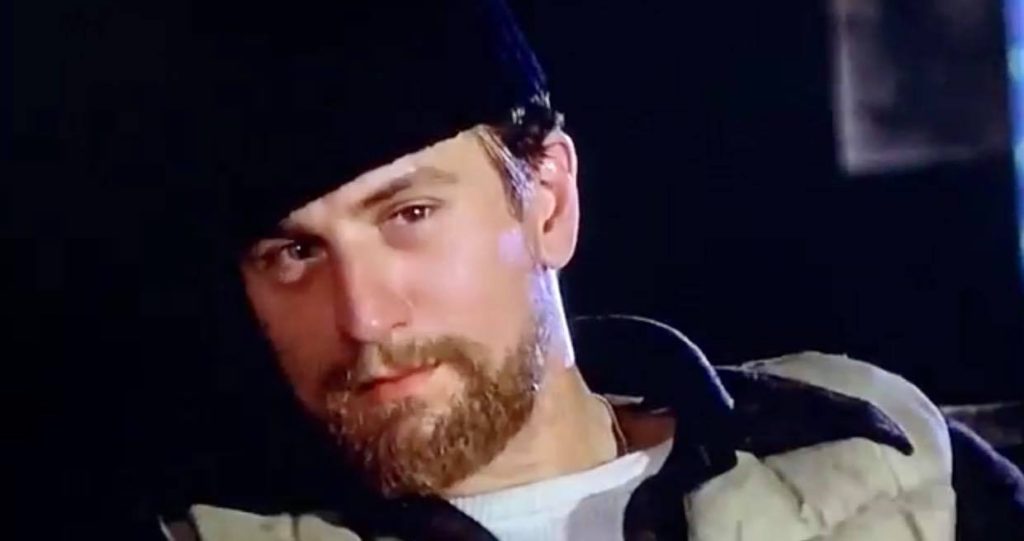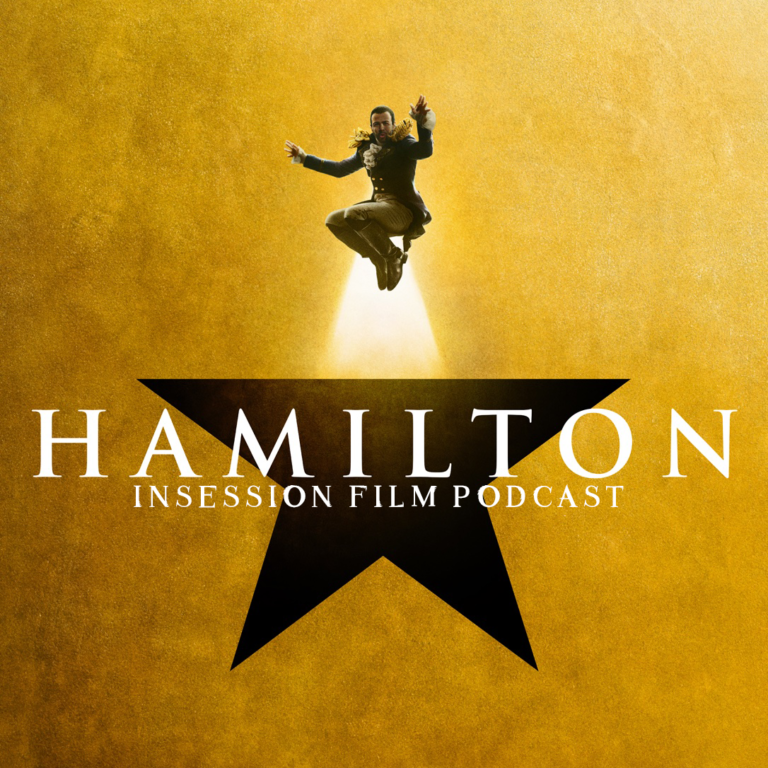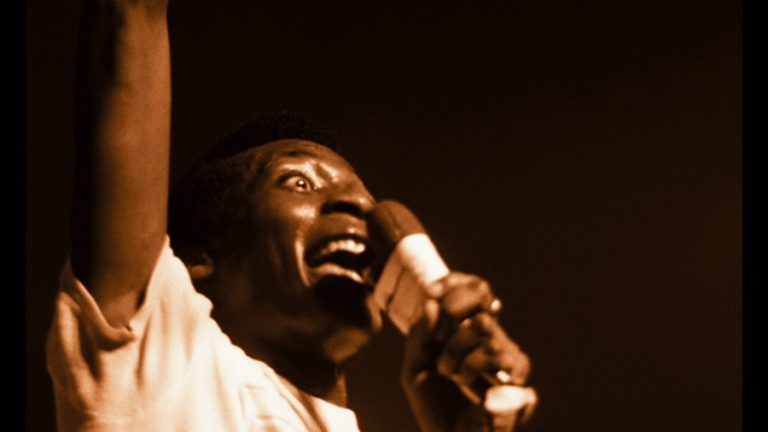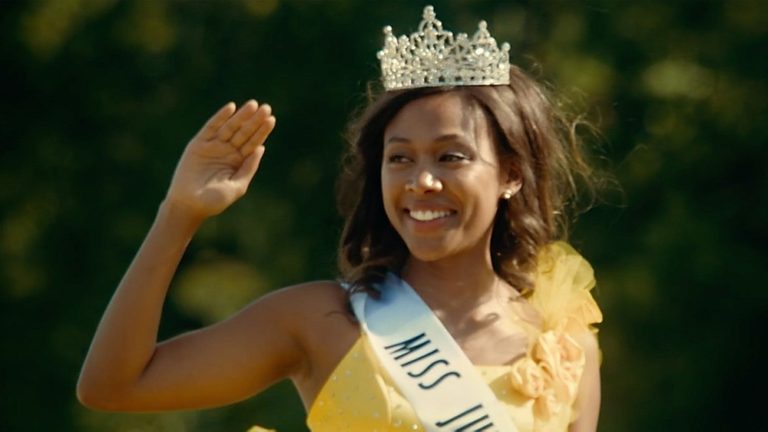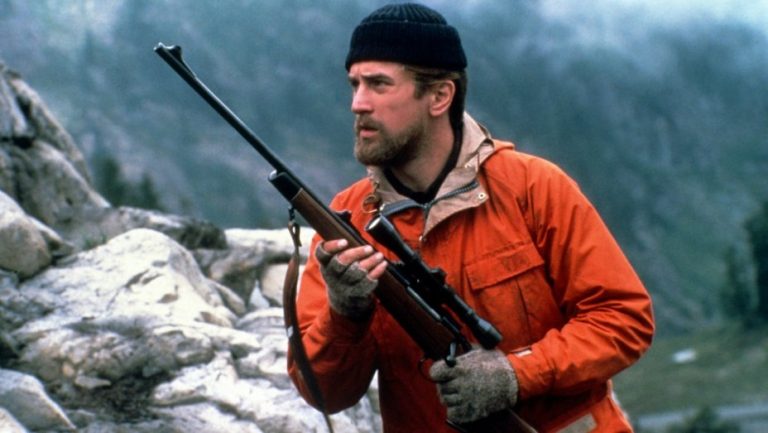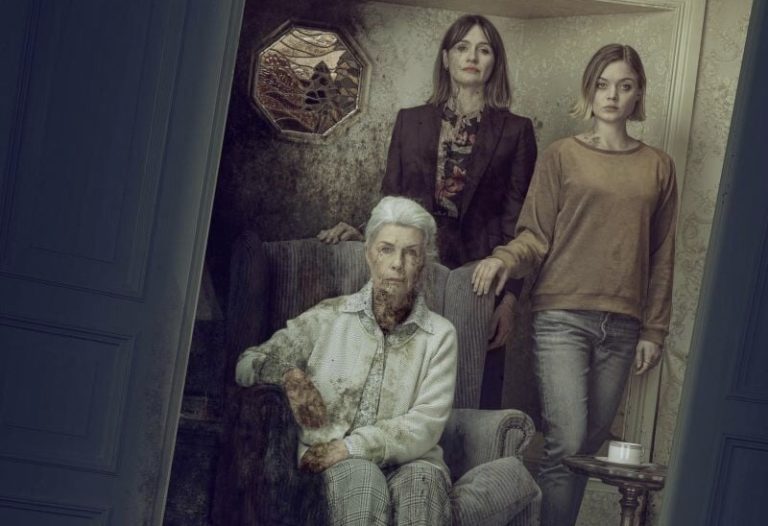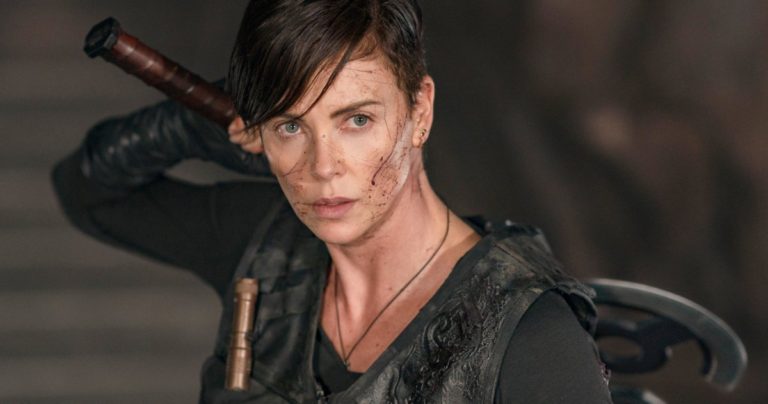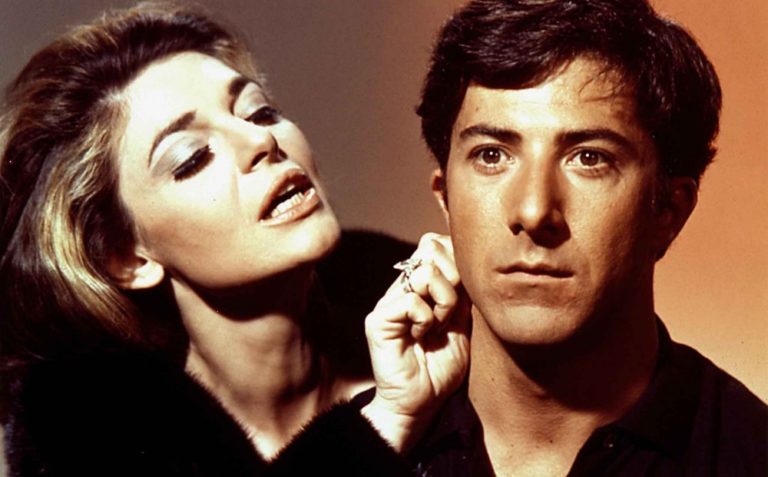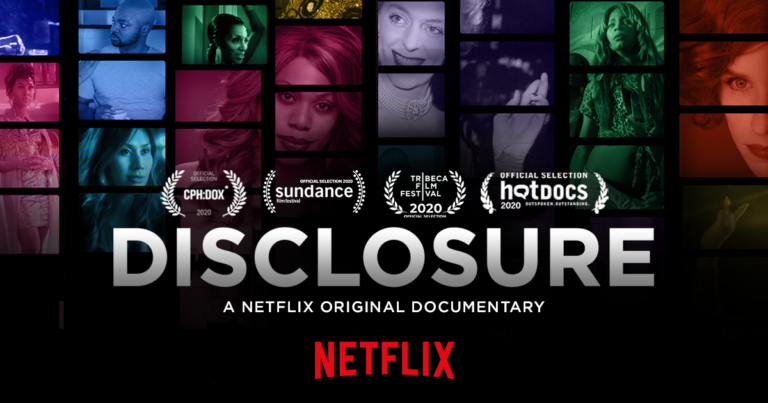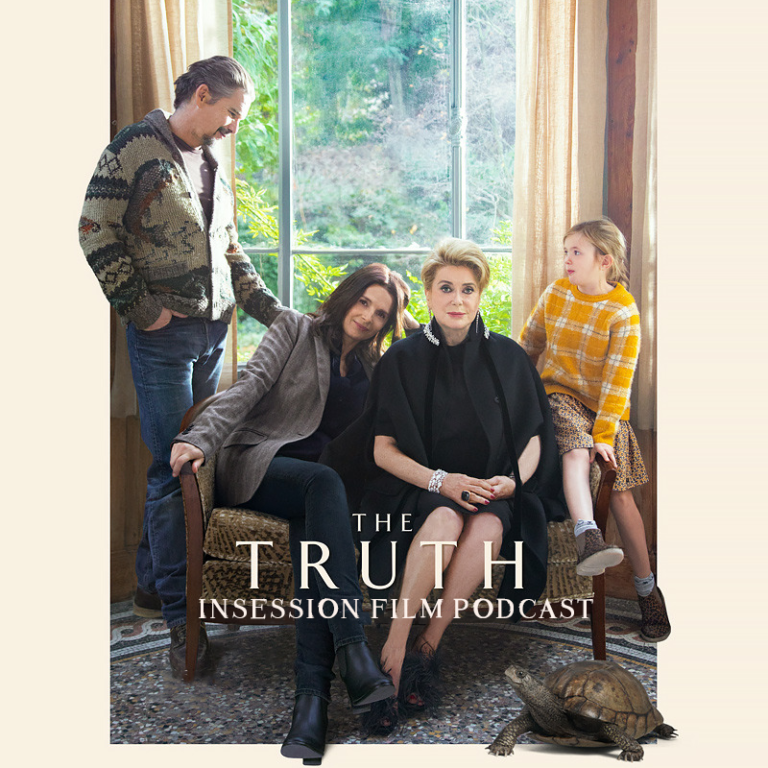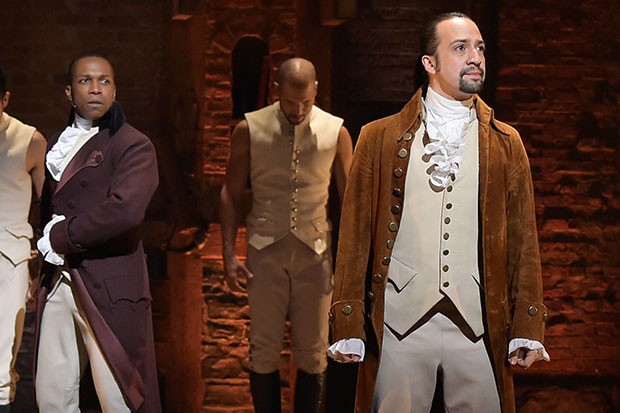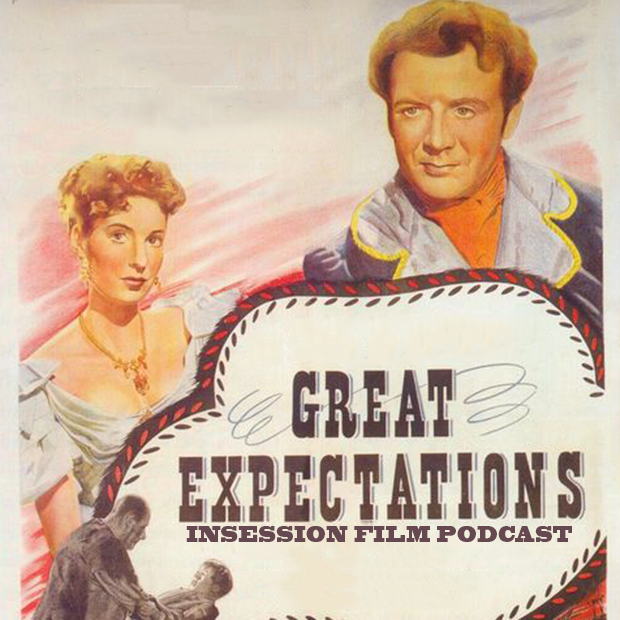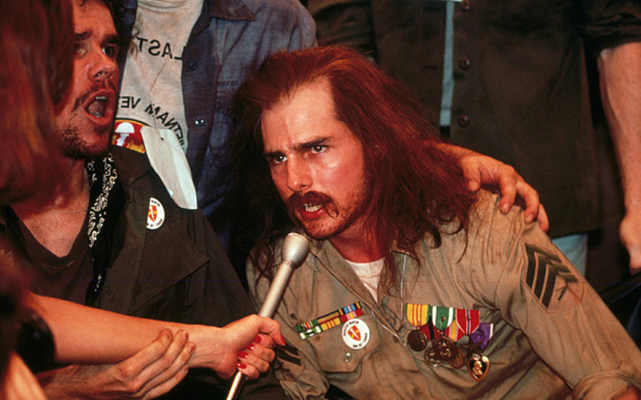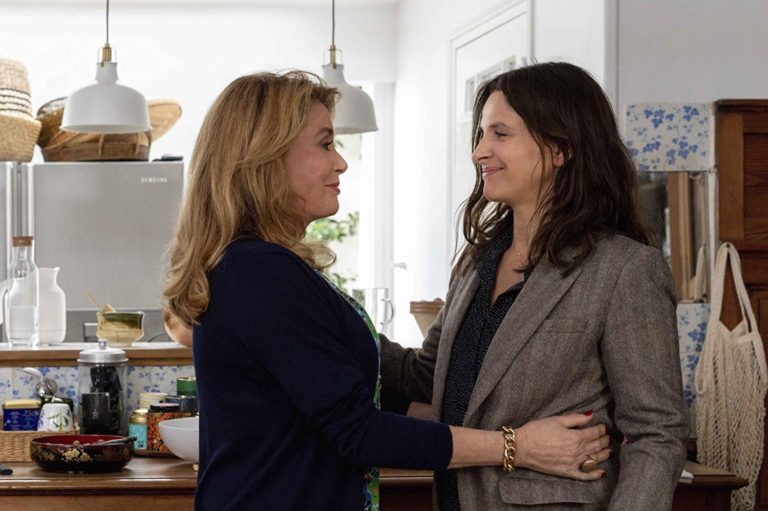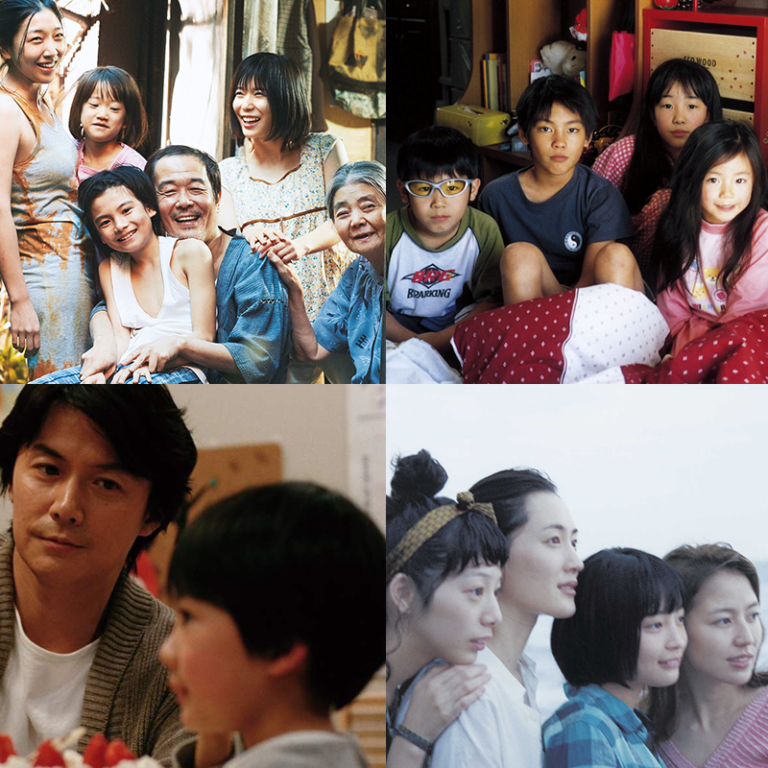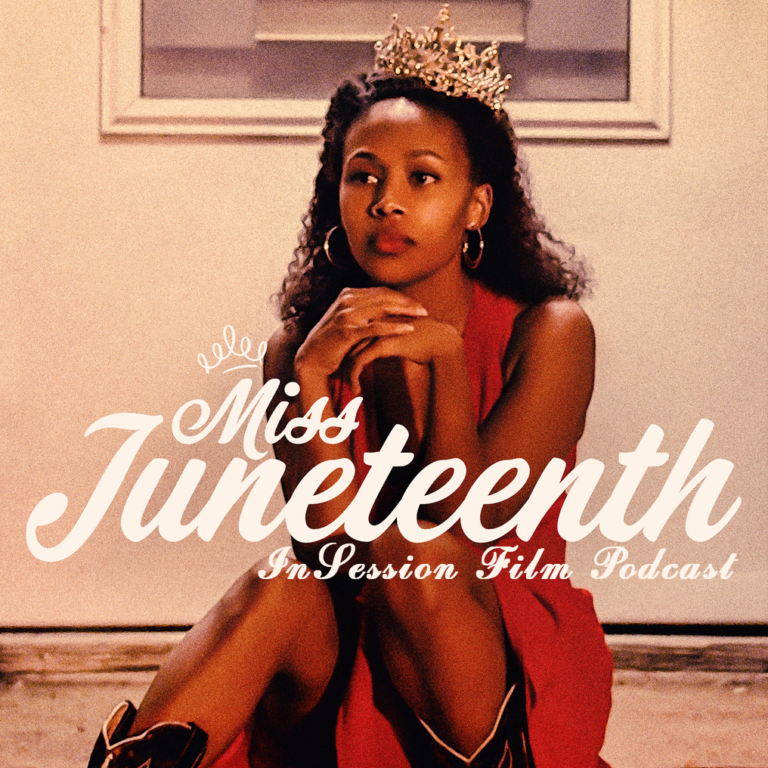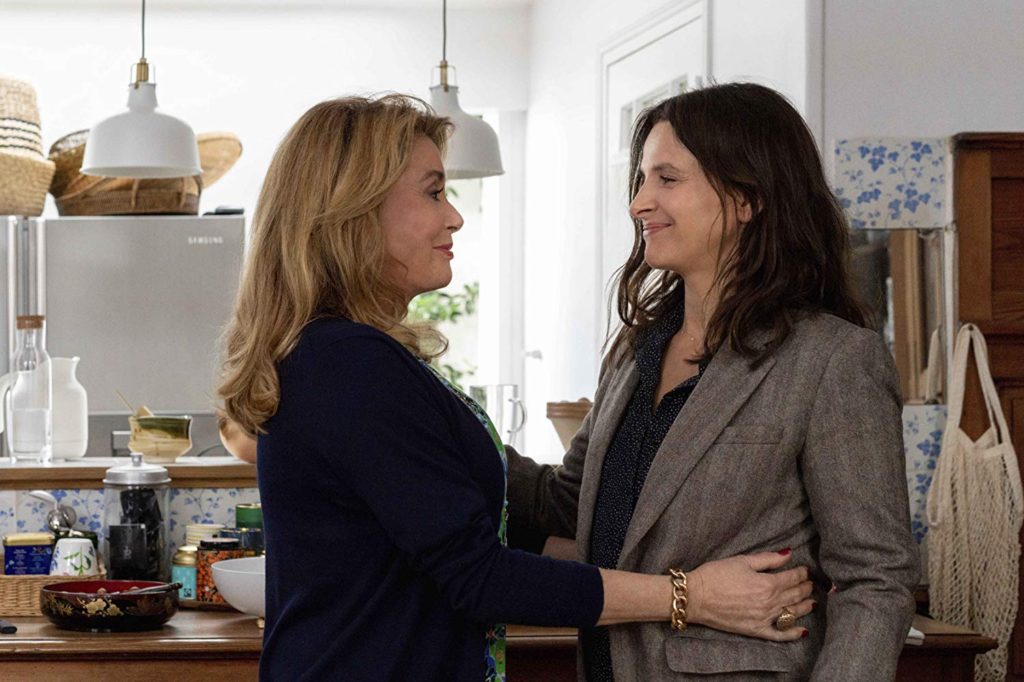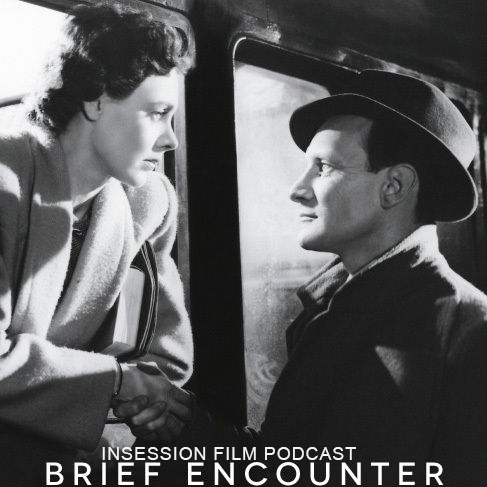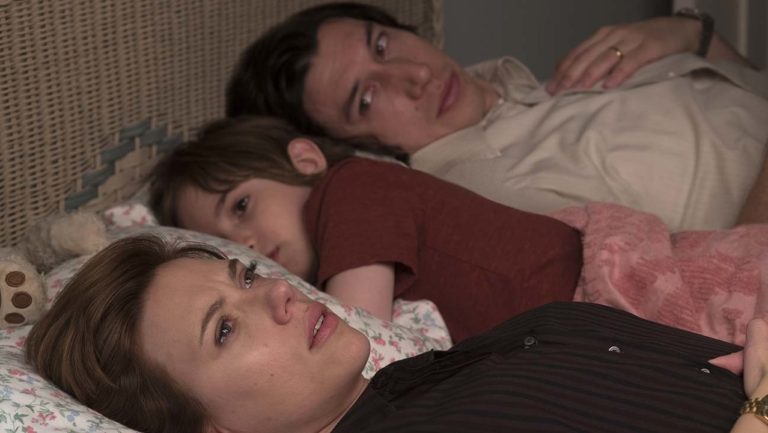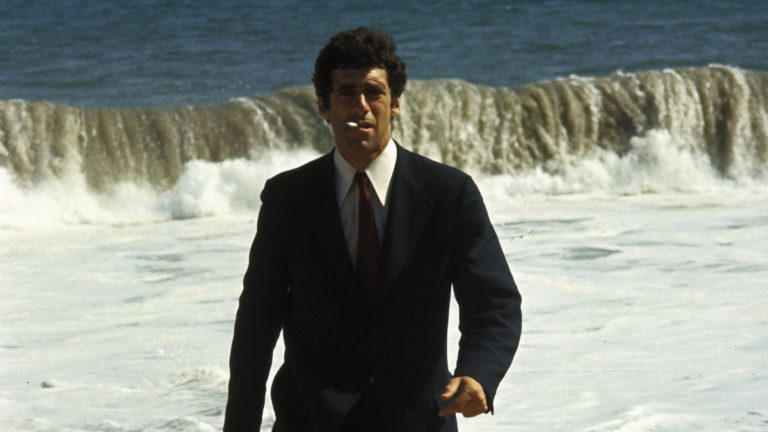**Spoilers Ahead for The Deer Hunter**
“What’s your favorite movie?” It’s a question that we’ve all been asked many times in our lives. Some answer with The Godfather, others with Jurassic Park, or maybe even Battlefield Earth (okay, maybe that one is a HUGE stretch). But when I’m asked this question my number one has always been Michael Cimino’s The Deer Hunter. Additionally, when asked about your favorite romantic movie, you could name obvious films like P.S. I Love You or Love Story, but for me, what if I told you that it’s actually The Deer Hunter as well. Confused? It’s okay, I’m here to explain how the infamous war movie and Best Picture Academy Award winning film is actually not only a war movie about Vietnam, but also a love story. And not just any love story, it’s a gay love story.
Released for Academy qualification on December 8, 1978, but wide-released in the United States on February 23, 1979 (my birthday, just thirteen years before me), The Deer Hunter was met with a lot of controversy due to the treatment and “exploitation” of the Vietnam War. It may be revered today, and it had its praise at the time as well, but it also came with a significant amount of criticism. That year, Jane Fonda called the movie a “racist film that represented the Pentagon’s view of Vietnam” (whether this was her actual feelings or her attempting to tear down the film’s chances to win Best Picture that year is up to you to decide. Her film Coming Home, ironically another Vietnam War themed film, was its biggest competition that year). However, on the other end of that coin, my grandfather is a Purple Heart Vietnam-vet and listening to him talk about the war growing up will forever stick with me. He’s spoken about how The Deer Hunter is an accurate representation of what actually happened in the war (ahem, Jane). But I digress. The film starred Academy Award Winner Robert DeNiro, Christopher Walken, Meryl Streep, John Savage, John Cazale, Rutanya Alda, Chuck Aspegren and George Dzunda. It was directed by Michael Cimino and went on to garner nine Academy Award Nominations, including Best Picture, Director, Actor ( DeNiro), Supporting Actress (Streep, her first of many), and Supporting Actor ( Walken). It eventually won five Oscars, including Picture, Director and Supporting Actor (although, in my opinion, it deserved Actor and Supporting Actress as well). It became a critical and financial success, and it’s the single greatest Best Picture winner ever in my opinion (followed by Amadeus).
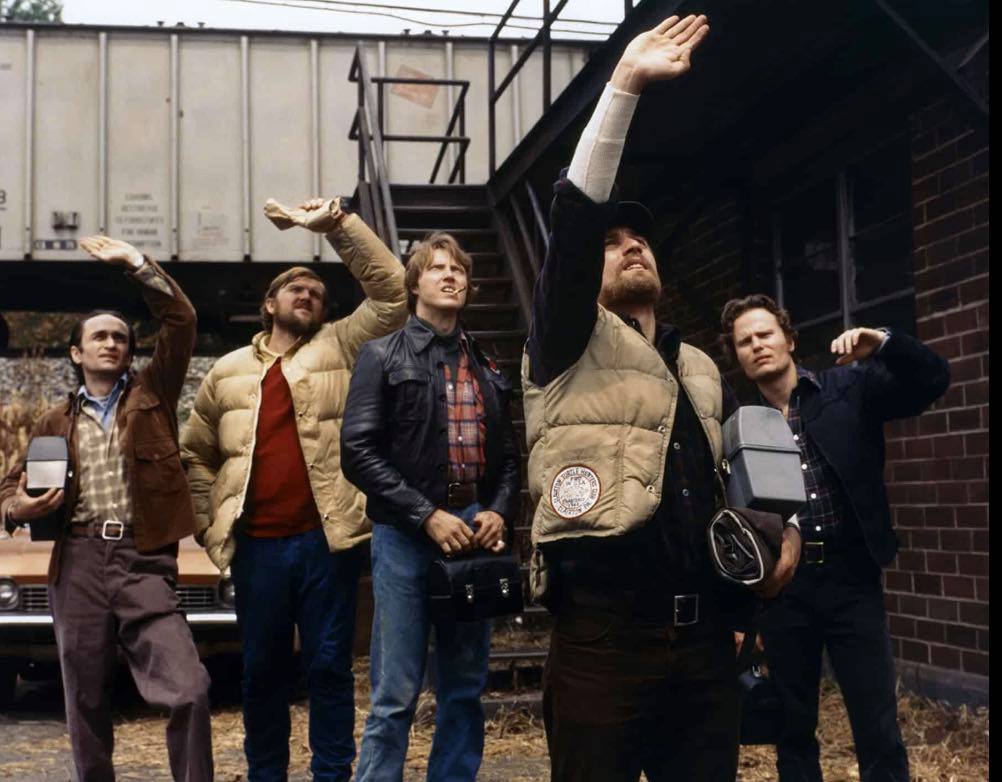
My love for The Deer Hunter came to me about 10 years ago while working for Blockbuster (remember that old relic). I watched the film and fell in love with it instantly. The 3-hour long film boasted a great story that’s dissected into three distinct acts as it relates to the Vietnam War. The first hour is pre-Vietnam, while the second hour is the actual war itself, and the final hour is post-Vietnam. It’s a great structure that truly encompasses the experience of the war as a whole, and what it can do to an individual. I was fascinated with the concept of war, the human psyche and the long term effects it can have on someone. I think what Cimino did here in terms of storytelling and characterization is one of the most fascinating aspects of this film. The first hour alone is entirely dedicated to character development. That’s insane. And after years of revisiting the film and dissecting it frame by frame, you start to notice new things that come as result of the film’s methodical approach. Specifically, I’ve noticed an an underlying theme, and a possible second plot that has been hidden in the direction of Cimino for almost 50-years. I’ve grown to love it like a child of mine, like my first born. The Deer Hunter is a film about the Vietnam War, but it’s also a gay love story between the characters of Michael (DeNiro) and Nick ( Walken). Let me explain why.
For the record, I am a 28-year-old gay man, but don’t let that fool you into thinking that this is a biased perspective. It’s more fundamental of what it’s like to love through gay eyes.
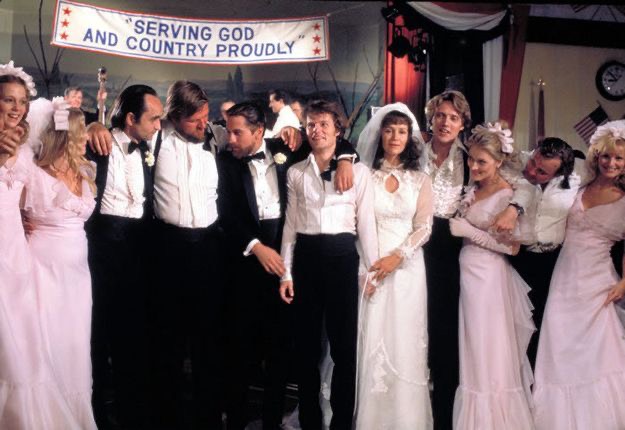
The movie starts off with a group of buddies getting out of work and getting ready for their friends wedding. They also embark on a final hunting trip before a few of them go off to fight in the war. Right away it’s established that Michael & Nick are very close friends, in addition to the fact that they live together as well. As the guys are packing for their hunting trip, Michael is very soft spoken with Nick and teases him for yet again forgetting something for the trip. It’s here where you’ll notice the playful back and forth between them. Michael is soft spoken yet stern, and Nick responds playfully and flirty. It should be noted as well that the term “One Shot” comes into play. As Michael explains, it’s a notion that describes all it takes to kill a deer. However, its symbolism carries further beyond hunting and the idea becomes a bonding mechanism between the two as Michael only mentions this to Nick.
During the wedding, there’s a moment when Michael is drinking at the bar and looks out onto the dance floor towards Nick and Linda (the pair are dating at this point in the film). While he’s looking at them, we see a woman who tries to flirt with Michael with big “fuck me eyes,” yet his gaze is never towards her, it’s just a mistake on her part. Cimino frames this moment on Michael smiling with love towards, you guessed it, Nick. Following that, there’s a moment where Linda catches his gaze and he instantly turns around smirking. The second female gaze by mistake on the female’s part.
After the wedding, the newlyweds (Alda & Savage) are driving off and the gang runs along beside them in their “JUST MARRIED” mobile. Michael begins to strip off his clothes and everyone laughs along as Nick runs after him. Eventually Michael is buck naked and laying down on a basketball court. Nick runs up to him and covers him up and sits down on the ground next to him, prompting Michael to sit back to back with him. They have a heart to heart conversation about going to war, but at least they’ll be together.
During the hunting trip, there’s a moment of hostility with Stan (Cazale, although to be honest every moment with Stan is hostile) where he forgets his boots, and after Michael denies him an extra pair to teach him a lesson, Stan calls Michael a faggot. A sentiment that Stan is believing more and more because no matter how many times he’s hooked Michael up with women, “nothing ever happens.” This causes Nick to be the only one to step in and defend Michael.
When the boys get back from the hunting trip, there’s a scene at the bar when Michael & Nick have a deep flirtation with their eyes. They are literally screaming for each other through their stares as they hide who they are from the group.
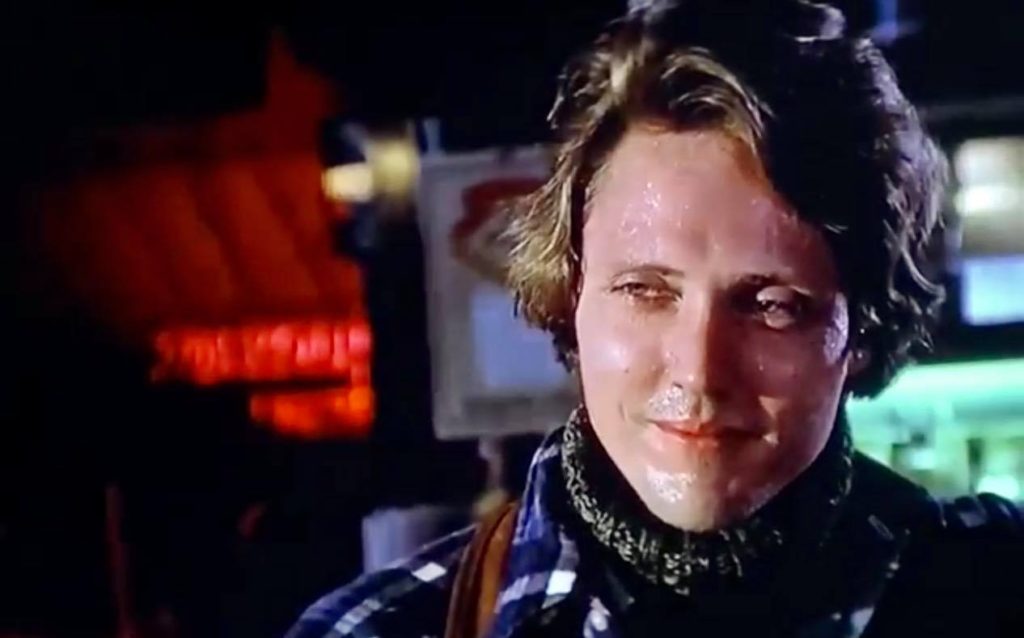
In Vietnam we find Nick, Michael, and Steven (Savage) kidnapped by the Vietnamese as they fight for survival through a game of Russian roulette. A pact is made to get out by Nick and Michael in the form of – one shot.
Eventually Nick finds himself on the streets of Saigon where he mistakes a soldier for Michael. Note that this is the happiest we have seen Nick since the bar where they had “fuck me eyes” for each other. In his disappointment and what feels like abandonment from him, he runs off into the night as Michael chases him down from a back alley Russian roulette game.
Michael finds himself back home and talking to Linda as she asks him if he’s seen Nick and vice-versa. It’s here that I feel one of two things – either Linda knows about Nick and Michael and is understanding her place as the “beard.” Or she truly doesn’t understand, and despite her attempts to get closer to Michael, he just sees her in the best friend role. I honestly want to say it’s the former and here’s why. There comes a point, as both of them leaning on each other for emotional stability, where Linda suggests they go to bed with each other to feel comfort in one another. Why would she offer that? Simply, she understands the love they share for Nick. Michael wants Nick because he loves him. She loves Nick and understands the time period they are in therefore she feels that she can be a sexual proxy of some sort, and thus provide comfort to them both. Michael denies her and understandably so.
At a bowling alley with the group of friends, Stan asks Michael what he thinks of the woman he just picked up. His response is uncomfortable as he doesn’t want to answer the question, yet Stan pushes him to and out comes his denial of thinking she’s pretty. Stan, I do believe at this point, realizes what type of person Michael is as his whole demeanor softens with him from here on out.
Michael makes his way back to Vietnam to find his love and bring him back home. Only now Nick is barely recognizable and has become a legend in the underground Russian roulette world. Michael tracks him down and tries to convince him to come home, and it’s here where the final piece of the love puzzle comes together. He professes his love for Nick, and tries to show him how he’s still here and needs him at home. “One shot” was used as a metaphor this whole time for the love they are supposed to share, but alas Nick is too far gone in his heroin and risk addiction that the bullet that has made him a legend takes his life. It’s here where we see Michael completely break down while holding the love of his life in his hands as Nick bleeds out and dies. The loss DeNiro brought to Nick is visceral and beyond the loss that I felt Heath Ledger demonstrated in Brokeback Mountain.
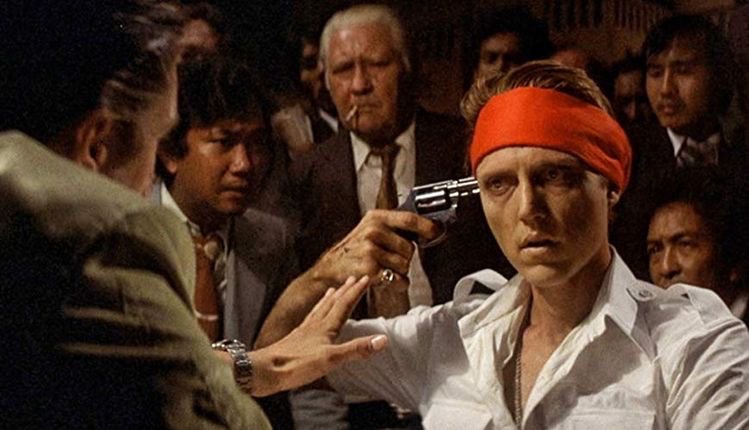
Nick’s body is brought back to the states where Michael is head pall-bearer at his funeral. He says his final good-byes to his love once and for all.
There’s way too much underlying here in tone for this not to be a pure coincidence. It took me a few years to notice it, but it makes sense given the arguments I laid out and the always evolving rumor mill that director Michael Cimino was gay. A few years ago I brought all of this up to actor Rutanya Alda who said she had never heard of this idea, the subplot that Michael & Nick were together, but that upon thinking about it, it wouldn’t be surprising. I dare anyone to revisit the film, looking at the points I have marked out and tell me I’m making this up. You can’t, it’s too obvious. Of course we’ll never know if Cimino did this with intention as he died four years ago, so this analysis could be completely fiction, but I don’t believe so.
I have a special love for this movie, I think it’s perfect film making and it’s one of only two “perfect” movies ever made – the other being Terrence Malick’s The Tree of Life. From the direction, the story, the acting, the score, the editing, everything is impeccable and it truly is my favorite movie of all time. It’s also my favorite love story, and that’s how I intend to watch it as well from now on – a love story about a forbidden love at a time when you couldn’t be your true self in the public. A love story about two men where one literally died because he felt lost without his man, and wound up in a rabbit hole with no way out. A gay love story that preceded the likes of Brokeback Mountain and Call Me By Your Name by decades. A tale that I hope can be beloved by the LGBT community as a story of true love.
